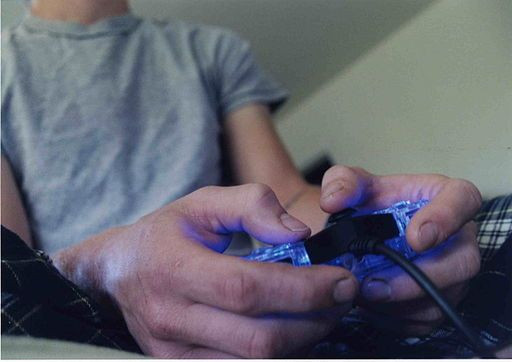Children With Autism More Prone to Video Game Addiction

Children and teenagers with autism spectrum disorder (ASD) spend more time playing video games and watching television than their neurotypical siblings, and are more likely to develop "problematic" media habits like video game addiction, according a recent study.
The findings add context to the growing use of autism therapies based on video games and other technologies, which researcher Temple Grandin believes have great potential in teaching children with ASD how to develop social and communication skills.
"Many parents and clinicians have noticed that children with ASD are fascinated with technology, and the results of our recent studies certainly support this idea," said Micah Mazurek, a clinical child psychologist at the University of Missouri who led the study, in a statement.
Though technology can be very helpful for young people with autism when used in certain circumstances, the research cautions that autistic gamers are at risk for video game addiction and added stress, as detailed recently in Wired.
Mazurek led a study on use of screen-based media-which includes television, video games, computer games, and electronic social media like email, texting, and social networking websites-in 202 American children and teenagers with autism spectrum disorder, aged 8 to 18, and 179 of their neurotypical siblings. The results are available online, and will be published in an upcoming issue of the Journal of Autism and Developmental Disorders.
Parents of the study participants completed questionnaires about their screen-based media habits, which asked how much time the children spent with such technology, and how often they used them. They also completed the "Problem Video Game Playing Test" (PVGT), a clinical measure that is in development to assess behavioral addiction to playing video games.
The results showed that children with autism spent about 4.5 hours per day, on average, playing video games and watching television, compared to the 3 hours their siblings spent on them per day. Both measures are above the recommendations of the American Academy of Pediatrics, which suggests no more than 2 hours per day, but children with ASD also spent significantly less time on academic, social, or physical activities.
Children and teenagers with ASD also had higher levels of "problematic video game use" according to the clinical measure, like getting angry when interrupted from games, spending more time on games than with friends and family, and having trouble stopping game play when there are other things to do.
On the other hand, children with ASD spent much less time using social media like Facebook.
"Children with ASD may be attracted to video games because they can be rewarding, visually engaging and do not require face-to-face communication or social interaction," said Mazurek in the statement.
These qualities feed into autistic children's strengths in visual perception and responsiveness to specific cues, and offer "opportunities for mastery and achievement" while allowing them to avoid difficulties with face-to-face interactions and complex social rules.
However, Mazurek warns that the appeal of video games may be so self-reinforcing that children with ASD may have trouble disengaging from them. This might lead to further difficulties in developing social skills, or learning to self-direct behavior- not to mention the risks of a sedentary lifestyle, like obesity. Another study indicated that problematic video game may be linked to other problem behaviors like arguing, refusing to follow directions, and aggression, and she plans to investigate those connections further in future studies.
This research was limited by reliance on parent reports, but Mazurek hopes that future studies can provide more information about children's autism severity and level of cognitive and adaptive functioning, and help understand the predictors and consequences of extensive video game use over time.
In an article for The Scientist, Mazurek discussed the potential benefits and risks of screen-based feedback therapies that can teach children with autism social and communication skills. While she is hopeful that the rewarding qualities of video games can translate to such technologies, she encourages more research to confirm that such technologies can translate to real-life social interactions.



























